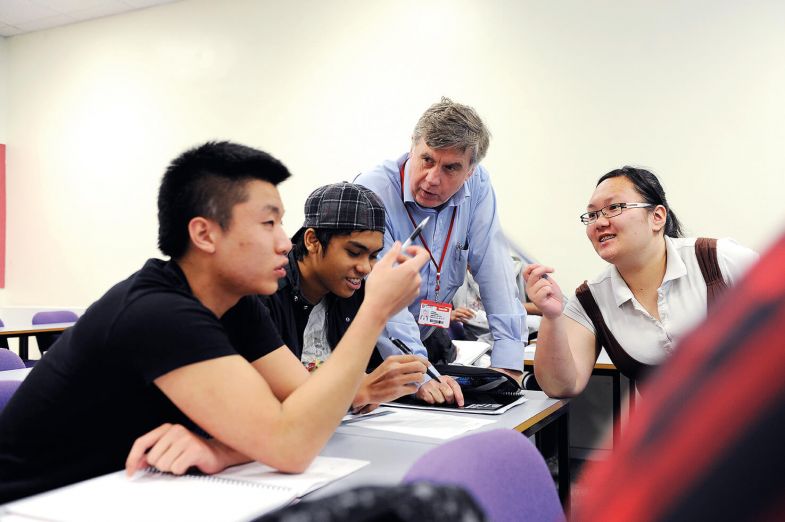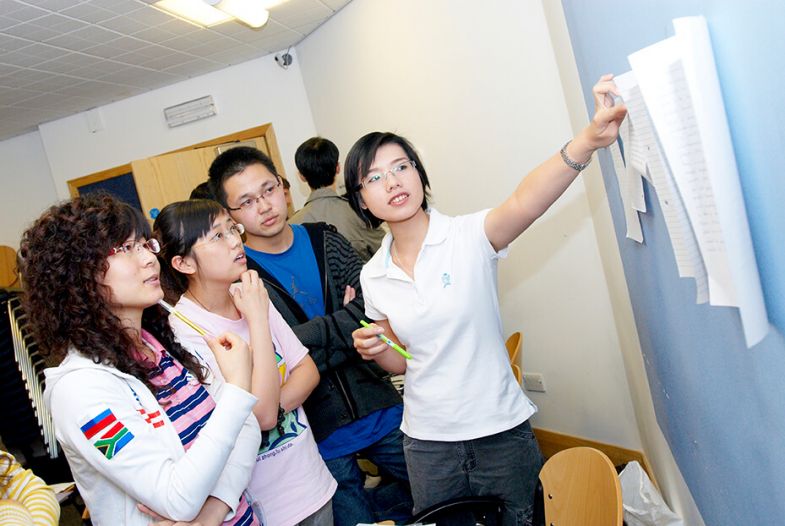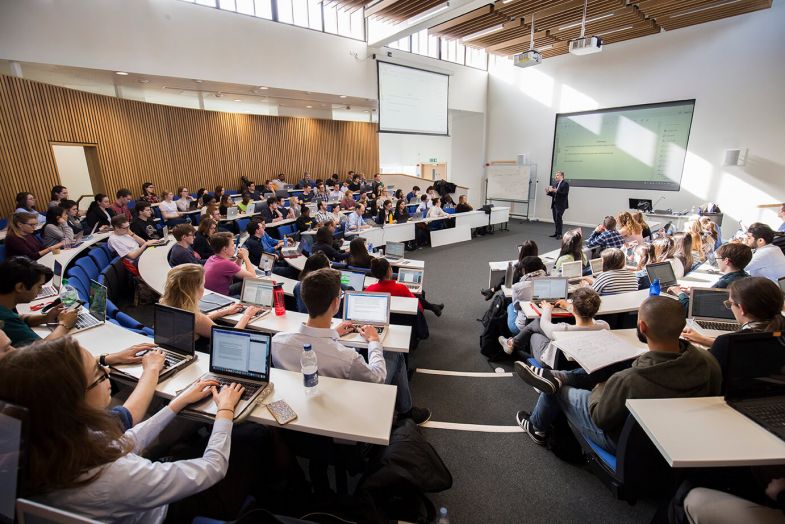Why study Politics?
They say Politics is the art of the possible, so what’s possible for its graduates? Politics and International Development is one of the most globally-focused subjects; giving you the opportunity to develop key transferable skills that will allow you to work in a vast array of industries across the world: from government and charity sectors to jobs in journalism or law.
In the UK, over half of graduates are in full-time employment six months after graduation, making Politics one of the best non-scientific subjects for employability.
What will you study? 
If you’re passionate about changing the world and making a difference, Politics could be the ideal subject for you. Do you enjoy debating ideas around democracy, justice and equality? You’ll get the chance to develop key communication skills like these through seminar discussions, as well as picking up important academic skills through lectures and research.
Whether you’re interested in the environment, human rights or political organisations like the United Nations or the European Union, you’ll cover a variety of subjects including: political theory, campaigning and advocacy to wider issues such as communication, migration and international law.

Join, or start a society
University study will provide many opportunities to join various groups and clubs, as well as start your own. Most universities in the UK belong to the National Union of Students, known as the NUS. The NUS run their own clubs and societies in universities and run various student-focused campaigns. If you fancy a career in Politics, you can even run as your university’s student president to get an exciting taste of what it’s like to campaign and represent others.
Consider a work placement year
Many Politics-related degrees offer a work placement year as part of your studies, to give you the opportunity to get some valuable real-world experience. Depending on what discipline you study within Politics, particularly International Development or International Relations, you may get the opportunity to study for a year in another country as part of your degree. If your degree doesn’t offer this, volunteering for a charity or not-for-profit organisation could really boost your CV – just make sure it’s relevant to your future career!

Gain a global advantage
Studying Politics in the UK will give you a glimpse of one of the oldest Parliamentary democracies in the world, housed at the Palace of Westminster. Use your study abroad experience to get accustomed to different people, customs and social institutions, it will give you a valuable perspective into international relations which may prove useful in your career.
If you can you should also take the time to further develop your English skills, whilst in the UK. English is the most widely spoken language in the world and is often used in business, media and diplomacy so it is a valuable second language to master. You’ll get extensive language tuition as part of your INTO course in the UK but you can also make friends with native students and practice your conversational skills with them – it might bring out the inner ambassador in you!
International Year One in International Development with Media at INTO UEA
International Foundation in Humanities and Law at INTO UEA
International Foundation in Business, Economics, Society and Culture at INTO UEA
Study International Foundation in Business, Management and Law at INTO London
Study International Foundation in Social Sciences and Media at INTO London
Study International Foundation in Media, Humanities and Social Sciences at INTO University of Stirling
Study International Foundation in Humanities and Social Sciences at INTO Manchester in partnership with University of Manchester
International Foundation in Humanities, Law and Social Science at INTO University of Exeter
International Foundation in Humanities and Law at INTO City, University of London
International Foundation in Business and Economics with Accounting at INTO City, University of London
International Foundation in Humanities and Social Sciences at INTO Newcastle University
Statistics taken from the Higher Education Statistics Agency (2017









